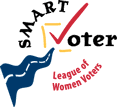 |
|
||
Voting on the InternetBy Warren SlocumCandidate for Assessor-County Clerk-Recorder | |||
This information is provided by the candidate | |||
The Internet Could Help Expand Civic Engagement.California Should Be a 21st Century Beta Site For Electronic Democracy! Did you know that voting is now permitted in outer space? That's right. Under a new Texas law, astronauts on space missions will be allowed to vote an electronic ballot. House Bill 841, effective September 1, 1997 allows for the use of e-mail ballots. The first person to have the opportunity to use the provisions of the new bill was U.S. astronaut David Wolf who served on the Russian Space Station Mir during the elections held in Texas on November 4, 1997. Mr. Wolf is a registered voter of the Lone Star State. Before he blasts off, Wolf will select a special voting password. His ballot will be e-mailed from the County Clerk's office to the Johnson Space Center and then to Russia for uplink to the space station. After he has voted his electronic ballot, the process will be reversed. So, was history being made? You bet!Not only was there an electronic ballot that travels to and from outer space but it got handled by the Russian space agency.Other electronic initiatives are currently underway in two other states as they plan to allow overseas voter to cast cyberballots via the Internet. And little Costa Rica has expressed serious interest in voting online. If voting in outer space was possible in 1997 and if other states and countries will allow experimentation - voting on the Internet should be possible in 1998 in California. Consider the following: The current process of voting is 200 years old. Voter participation is declining. Many people don't like going to the polls. Voting methods have been increasing (fax and mail). And elections are expensive. At the same time, the Internet has millions of people connected. Most people graduating from college are comfortable using the net. 35% of California's work force are "knowledge workers" who use computers. Internet connections are available at schools, libraries, work places, neighborhood technology centers, retail outlets and the neighbor's house. And finally, surveys and election Web site usage data show that voters want to use the Internet as a voter services and education resource. Bring up voting on the Internet, however, and some people twitch.In order to insure the integrity of Internet voting, a few issues need to be resolved. There must be absolute security and the notion of one-person one vote must be protected. The ballot must be secret. Eligibility for voting must be determined and there must be an audit trail.According to electronic voting system developer, Jim Fardeen, all those issues can be solved using current technologies. "Just look to the financial transactions occurring on networks today. With the proliferation of public key security, voters will be uniquely identified – ballot encryption will guarantee privacy and safe transmission." Another industry expert, Mr. Robert Yudkin, Solutions Manager of Election Systems, Global Government Industry at IBM claims that the first vote cast on the Internet will occur in 1998 and that Internet votes will be accepted in more than half the states by 2002. Technology giants IBM and Microsoft are believed to be currently working on Internet voting projects. The Washington, D.C. based Federal Overseas Voting Commission is currently recruiting volunteer(s) to pilot the use of the Internet for absentee voters overseas. From outer space to Washington, electronic ballot initiatives are increasing.It's time for California and especially the Silicon Valley to take the lead in this area and demonstrate that Internet voting is technically possible and that it would help expand democracy. In addition, it's time for Sacramento to provide the leadership necessary for a demonstration Internet voting project rather than constantly playing to the fears of people that voter fraud is running rampant.The California Internet Voting Project could be limited to "absentee ballots" for only overseas voters as a starting point. A full report could be made to the governor and the state legislature on completion of the effort. There is a wealth of resources in California that could help make this historic undertaking possible. Sponsorship could be obtained from private companies, grants could be applied for and volunteers recruited for this noble and inspiring endeavor. Organizations like Smart Valley (who last year did the Web based Smart Voter Project – in cooperation with San Mateo and Santa Clara Counties) could play a coordinating role in the project as could the California League of Women Voters. The November 1988 General election is just around the cyber-corner. Let's not lose this golden opportunity to expand democracy and bring a part of it into the 21st Century that we in California have helped create. |
Candidate Page
This Race
|| June 1998 Home (Ballot Lookup)
|| County Election Links
About Smart Voter
Created from information supplied by the candidate: May 25, 1998 19:31
Smart Voter '98 <http://www.smartvoter.org/>
Copyright © 1998 League of Women Voters of California Education Fund, Smart Valley Inc.
The League of Women Voters neither supports nor opposes candidates for public office or political parties.